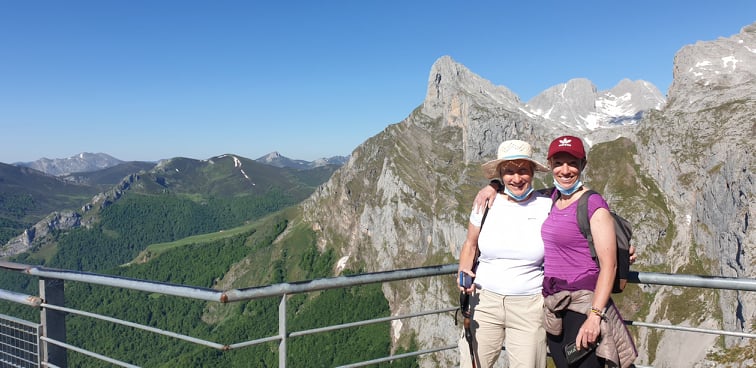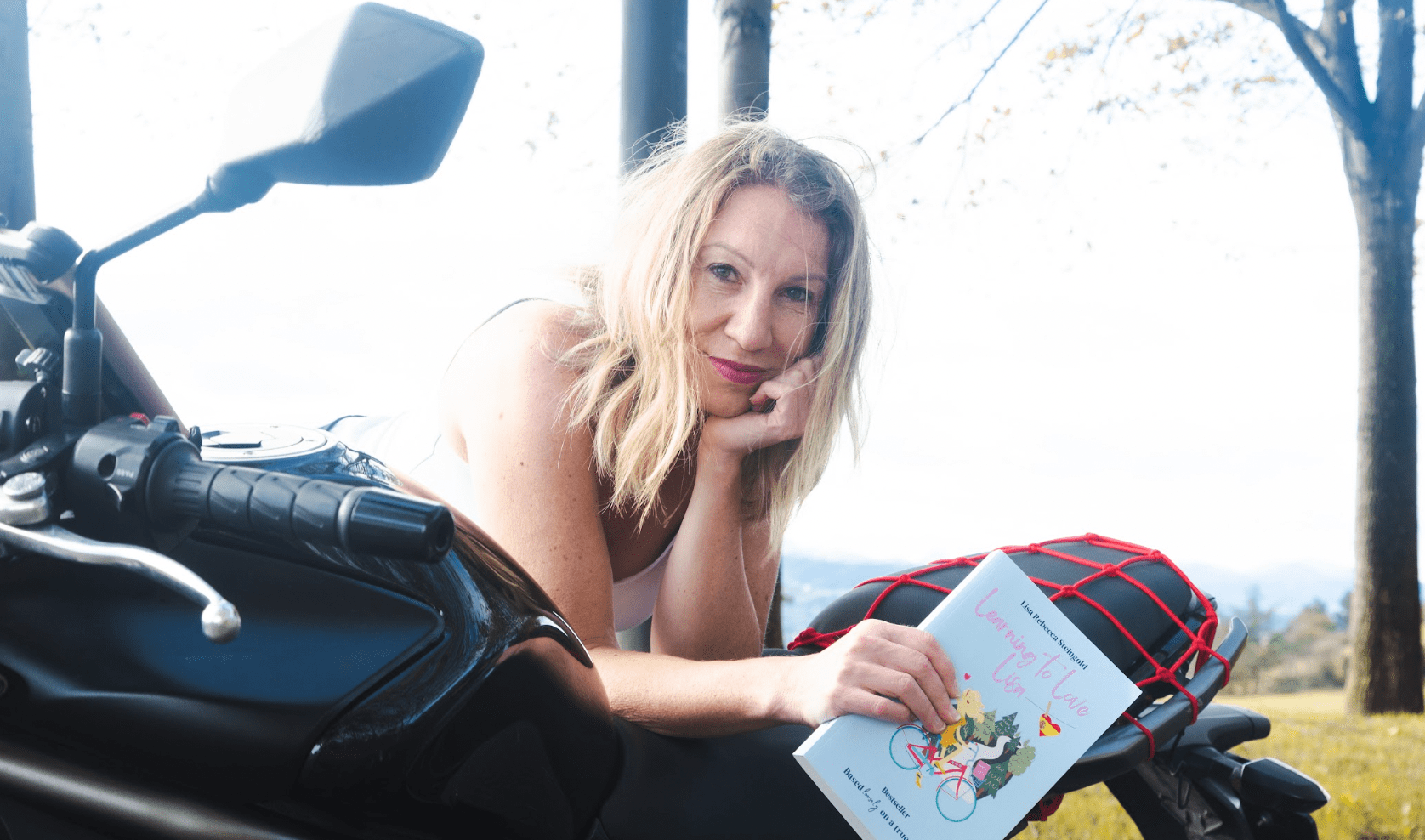Seriously my mother (Ruth) wrote this! I only found out a few weeks ago and when I read it, I cried. Firstly not only is the way she writes, nothing short of excellent but the story is POWERFUL!
Go mom! And thank you for all your courage!
Lisa
Resilience is the ability to rebound from adverse events or conditions, but where does personal resilience come from? I believe it develops over time, from a good dose of determination to overcome obstacles, from self-belief that comes from past outcomes and also from the motivation that fear brings. You may think it strange that such a positive quality can derive in a large part from the negative emotion of fear, but it is not the fear itself that builds resilience, but the ability to use it to promote a positive outcome, whether from self-confidence or desperation.
This aspect of fear helps us to explain why some people develop resilience and others, paralysed by fear or fear of failure, do not. We all have experienced situations where the outcome could have led to the weakening or strengthening of our resilience, depending on our reaction. When these situations are traumatic, they often become seminal events in our life, that determine whether we go on to become a more resilient person. This is my recounting of such a situation.
I have always been a determined person, probably thanks to my mother who never gave me any indication that there was anything that a girl could not do and to my father who gave me a good brain. My mother always said it must have been him who gave me intelligence as she still had hers. Like all teenagers I had a high level of arrogance underpinned by the knowledge that I knew much more than my parents, but alas, like most teenagers I lacked money. I should explain that I went to university when I was only sixteen. Looking back I can see that I was actually still quite naïve at the end of my first year.My closest friend was Jessica, an older more worldly-wise girl, whose fathers was a visiting professor at the university. Like me, she was similarly financially constrained.
Towards the end of the university year in 1973, we sat under the blooming jacarandas that are the signature of the examination season at the University of Witwatersrand and plotted what we would do in the upcoming holidays. At that time in South Africa, most of the students were from relatively well-off families who every December or January made the ‘Great Trek’ from Johannesburg to Cape Town. We too desperately wanted to visit this paradise. We planned to continue our part-time Saturday morning work in Woolworths, spend Christmas at home with my parents and then catch a train to Cape Town, staying at a youth hostel and returning 10 days later. It seemed a good plan to me but I needed my parents’ help to pay for the train and when I approached them about it, they immediately vetoed it, claiming I was too young! Well, that was like a red rag to a bull, and after spending an evening crying in my room and wondering why I had been born to such cruel parents who didn’t trust me, I came up with an alternative.
I would climb out of my window early in the morning and hitchhike into Johannesburg to meet with Jessica who had managed to find us a lift down to Cape Town. At this time I often used to hitchhike as I had no transport and there was only one bus a day into the city. My parents accepted this and luckily I had never had a bad experience. I knew my parents would worry and a couple of years ago I had seen how my mother broke down when my eldest brother ran away from home for three weeks, so I wrote them a letter and told them that I was going to Cape Town on holiday, that I would send them a telegram every two days to let them know I was safe, a promise I kept. Of course, I did not tell them where we were going to stay, so they could not send the police to me. I didn’t want to be irresponsible and yet thought of everything!
At the end of the ten days we had very little money and decided that we would have to hitchhike back to Johannesburg. In order to reduce the risk, we agreed that we would not take a lift where there was more than one man or from a lorry. I can’t remember the uneventful first part of the journey but our lift dropped us in the Karoo dorpie of De Aar around midday. We stood at the side of the Johannesburg road and waited and waited. In the midst of summer, it is boiling hot and the road disappears straight into the dusty horizon. There was hardly any traffic and none stopped. We were despairing when, near dusk, a car transporter pulled up. There were two men and it was a lorry! What should we do? It was getting late and they were going to Johannesburg, so we ignored our self-imposed rule and gingerly accepted a lift. I don’t remember why but I said we were tired and asked whether we could we sit in one of the cars to rest. They agreed and we set off through the night, knowing we would only arrive in Johannesburg early the next morning.
Of course, a few hours later, the trouble started. The truck pulled up on the verge and the men came over, offered us drinks and started to chat us up. They had been drinking, it was obvious what they wanted and as my level of anxiety increased, I pressed the central locking of the car we were in. That got their attention and one of them pulled out a knife. It was a stalemate! They were telling us we needed to be nice to them or we wouldn’t get home. Jessica looked pale and appeared to be paralysed, not speaking. My mind raced. How could we get out of this situation? Totally focused on just getting away safely, I started to talk slowly although my mind was full of thoughts. I came up with every argument that I could think of why what they wanted was a bad idea for them. I said we could wait all night, we would identify them to the police, they would lose their jobs and end up in jail, that people were expecting us in Johannesburg and knew which way we were coming. I demanded that they let us out at the next town or there would be dire consequences for them. My heart was pumping but I carried on and on arguing. Eventually, they agreed they would drop us just outside of the next town, Christiana , I guess they were just glad to get rid of us and I was certainly glad to see the back of them.
It was cold and dark, about four in the morning, still a few hours from home but we were free. I told Jessica, we were walking into the town and would get a lift from there. The rest of the journey back to Johannesburg has fled from my memory. I still don’t know Jessica why panicked and I was able to hold my nerve, but having lived through that fear, I realised that it is possible to overcome the paralysis that fear can bring. I faced the music from my parents who were just so glad to see me, but I never told them about the bad experience. I admitted to myself that they were right to worry and that parents of teenagers can be right sometimes. It just felt so good that to feel the hugs of my parents and I think from that day on I started to appreciate them much more. Now I know that my immediate family has always been there for me and are part of the bedrock of my life.
I also learned that I had some inner strength and the ability not to give up and that I could depend on myself. It is strange but although that experience should have been the most frightening of my life, I only felt the total paralysis much later in life, rock climbing in the Magaliesburg,. when I was objectively much safer. I know that without this experience I might have been too afraid to take advantage of some of my later opportunities in life. People would say to me, you are so brave, but I am not, I am just resilient and I have learned to face my fears.
And I’ve enjoyed a multitude of rich life experiences because of it.



